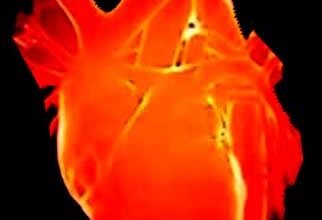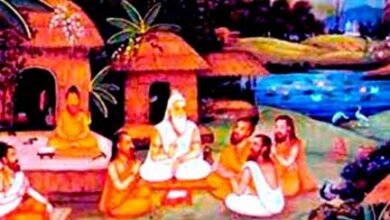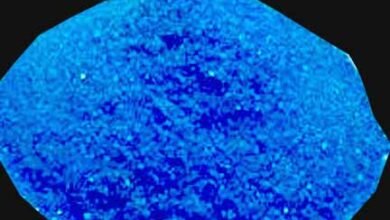
भूगोल से संबंधित-108.
| 1. Who first used the word ‘Geography’ to describe the Earth? = Eratosthenes.
2. What do isoline lines represent on the map? = Salinity of oceans and oceans. 3. The line shown on the map, which joins the same accessible places from any place, is called? = Accessibility Line. 4. Which cartographer first displayed the places in the projection according to their latitude and longitude? = Marinas. 5. Which scholar first measured the earth? = Thales. 6. The most accepted theory of the origin of the Himalayas at present is? = Geo-tectonic theory. 7. What is the geographical name of the coast of Pakistan? = Makran coast. 8. Which part of the atmosphere do most of the weather-related events take place? = Troposphere. 9. Where is the maximum growth of plankton? = Meeting place of cold and hot water bodies. 10. Indian Standard Time (IST) is the time of which longitude east of Greenwich? = 82½° of E. 11. Which state of India shares its border with China on one side and Pakistan on the other? = Jammu and Kashmir. 12. Which country is called the land of the midnight sun? = Norway. 13. One nautical mile is equal to how many feet? = 6080 ft. 14. What is the unit of measurement of sea depth? = Fathom. 15. Length of river Indus? = 2280 km. 16. The drainage area of Mahanadi flowing from Madhya Pradesh to the Bay of Bengal flowing from Odisha is? = 132 thousand square kilometres. 17. India’s longest sea bridge is? = Bandra-Worli Sea Link, Mumbai. 18. Which area coal is found in abundance in India? = Gondwana region. 19. What name is the man-made lake in the Bhakra-Nangal dam project known? = Govind Sagar. 20. Which two countries separate the Gulf of Mannar? = India and Sri Lanka. 21. The state with the highest rainfall in India is? = Meghalaya. 22. Which state has the highest number of tube wells? = Uttar Pradesh. 23. The pre-monsoon rainfall in Kerala and Karnataka is called? = ‘Mango rain’. 24. What type of lake is Lonar Lake in Maharashtra? = Crater Lake. 25. Which Himalayan part lies between the Kali and Teesta rivers? = Nepal Himalaya. 26. Which river of India is known as the ‘Ganga of South India’? = Godavari River. 27. Which state of India is Rudra Sagar located? = Assam. 28. India’s first bio-reserve area is? = Eucalyptus. 29. Where is the origin of river Kaveri situated? = Hill of Brahmagiri. 30. Which port was built to compensate for the partition of India? = Kandla. ========== ========== =========== 1. पृथ्वी के वर्णन के लिए सर्वप्रथम `ज्योग्राफी’ शब्द का प्रयोग किसने किया था? = इरेटोस्थेनीज. 2. नक़्शे पर आइसोलाइन लाइन क्या दर्शाती हैं? = महासागरों एवं सागरों की लवणीयता. 3. मानचित्र पर प्रदशिॅत वह रेखा, जो किसी स्थान से समान अभिगम्य स्थानों को मिलाती है, उसे कहा जाता है? = अभिगम्यता सममान रेखा. 4. सर्वप्रथम किस मानचित्रकार ने प्रक्षेप में स्थानों को उनके अक्षांश व देशान्तरों के अनुसार प्रदर्शित किया था? = मेरीनस. 5. सर्वप्रथम किस विद्वान ने पृथ्वी को मापा था? = थेल्स ने. 6. वर्तमान समय में हिमालय की उत्पत्ति का सबसे स्वीकृत सिद्धांत है? = भू-विवतॅनिक सिद्धांत. 7. पाकिस्तान के समुद्र तट का भौगोलिक नाम क्या है? = मकरान तट. 8. अधिकांश मौसम संबंधित घटनाएँ वायुमंडल के किस भाग में होती हैं? = क्षोभमण्डल. 9. प्लैंकटन का विकास कहाँ सर्वाधिक होता है? = ठंडी एवं गर्म जलधारों के मिलन स्थल.] 10. भारतीय मानक समय ( IST ) ग्रीनविच के पूर्व के किस देशांतर का समय है? = 82½° E का. 11. भारत के किस राज्य की सीमा एक ओर चीन से और दूसरी ओर पाकिस्तान से मिलती है? = जम्मू एवं कश्मीर. 12. अर्द्धरात्री के सूर्य की भूमि किस देश को कहा जाता है? = नार्वे. 13. एक समुद्री माइल कितने फीट के बराबर होता है? = 6080 फीट. 14. समुद्री गहराई मापने का मात्रक होता है? = फैदम. 15. सिंधु नदी की लंबाई? = 2280 किमी. 16. मध्य प्रदेश से निकलकर ओड़िशा से बहती हुई बंगाल की खाड़ी में मिलने वाली महानदी का अपवहन क्षेत्र है? = 132 हजार वर्ग किलोमीटर. 17. भारत का सबसे लम्बा समुद्री सेतु है? = बांद्रा -वर्ली सी लिंक, मुंबई. 18. भारत में कोयला प्रचुर मात्रा में किस क्षेत्र में पाया जाता है? = गोंडवाना क्षेत्र. 19. भाखड़ा-नांगल बांध परियोजना में मानव निर्मित झील को किस नाम से जाना जाता है? = गोविन्द सागर. 20. मन्नार की खाड़ी किन दो देशों को अलग करती है? = भारत और श्रीलंका को. 21. भारत में सबसे अधिक वर्षा वाला राज्य है? = मेघालय. 22. किस राज्य में नलकूपों की सर्वाधिक संख्या है? = उत्तर प्रदेश. 23. केरल एवं कर्नाटक में मानसून पूर्व होने वाली वर्षा को कहते हैं? = ‘आम्र वर्षा’. 24. महाराष्ट्र की लोनार झील किस प्रकार की झील है? = क्रेटर झील. 25. कौन-सा हिमालयी भाग काली और तिस्ता नदियों के बीच में पड़ता है? = नेपाल हिमालय. 26. भारत की किस नदी को `दक्षिण भारत की गंगा’ के नाम से जानते हैं? = गोदावरी नदी. 27. रुद्र सागर भारत के किस राज्य में स्थित है? = असम. 28. भारत का का प्रथम जैव आरक्षित क्षेत्र है? = नीलगिरी. 29. कावेरी नदी का उद्गम स्थल कहां पर स्थित है? = ब्रम्हगिरि की पहाडी. 30. किस बंदरगाह का निर्माण भारत विभाजन की क्षतिपूर्ति के लिए किया गया था? = कांडला.
|





